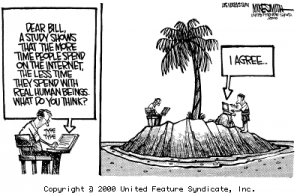The Flying Handshake

We know from research that it’s critically important to meet in person. So much nuance can get lost in translation over the phone, and certainly over email or in social media environments. Meeting face to face is important in early stages of assembling teams to embark on projects, and particularly important when introducing new people to projects whom others have never interacted with before.
In an interview with team expert Mary Waller, Professor of Organizational Studies at York University’s Schulich School of Business, she described an important accelerator to collaboration known as Transactive Memory Systems (TMS in pro lingo). Which basically means an understanding of who knows what information, and who possesses what skills on the team. This understanding of whom to go to for particular types of skill and knowledge to get things done is critically important in accelerating the performance of teams. And when the team is virtual, face to face interaction becomes increasingly important over the life-cycle of projects.
As this study, published in Management Science found:
“Frequent face-to-face communication also led to TMS (Transactive Memory Systems) emergence, but communication via other means had no effect.”
In other words, while digital or phone interaction at a distance is certainly valuable in the exchange of information and collaboration of ideas, such interaction doesn’t improve the quality of team transactions, thus performance.
So next time you have a digital interaction on a project, break the thread of email by picking up the phone. Then break the thread of constant conference calls by actually meeting in person.
The alternative can be pretty amusing:



